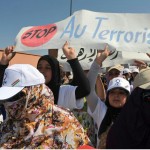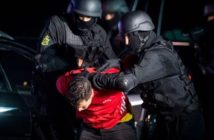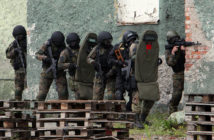
Moroccan commentators call for a comprehensive approach to combat terrorism and prevent radicalisation.
Morocco should update its methods for gathering intelligence on extremists and give its security services the tools needed for this, participants in a recent Kenitra seminar agreed.
The goal of the May 10th meeting held by the National Security Directorate General (DGSN) was to co-ordinate national security efforts to counter the phenomenon of religious extremism in Morocco and among expat communities.
“It is time to strengthen the role of the General Intelligence (RG) and give it major powers to track and monitor suspects belonging to extremist groups, as this role has been restricted to the Directorate of the Protection of the Territory (DST),” Mohamed Agdid, the department’s former head, told Magharebia.
Moroccan security experts, who specialise in monitoring terrorist crimes and cyber terrorism, gave presentations on the direct and indirect causes of religious extremism, and ways in which recruiters mobilise youths and indoctrinate them with jihadist ideology.
“This day was helpful to identify the strengths and weaknesses of the institution and to exchange experiences between heads of intelligence and border security services. We will draw and trace a map of extremism in the kingdom, which extends beyond the Moroccan territory to Moroccan communities abroad, especially due to the salafist jihadist wave,” Agdid said.
Experts talked about the role of intelligence in tracking the rise of extremist ideology and how youth come to embrace such radical thinking and become persuaded to carry out jihadi operations.
They also said that Moroccan security officers should co-ordinate efforts with their foreign counterparts in order to track terrorist movements and infiltration both and home and among Moroccan communities in Europe –especially in France, Spain and Belgium.
Intelligence officers “must be subject to continuous training because the forms of terrorism change and are constantly renewed”, Rashid El Mnasfi, an expert on international crime, told Magharebia.
In his presentation, DGSN chief Bouchaib Rmail emphasised the need to adopt more sophisticated approaches toward combatting the extremism that feeds terrorism.
It is crucial for civil society to contribute by refusing all types of extremism, violence and intolerance through promoting a culture of dialogue and open-mindedness, Moroccan Human Rights Organisation chief Mohamed Nachnach said at the May 15th meeting in Casablanca organised in memory of the 2003 attacks.
“We certainly shouldn’t minimise the importance of a better socio-economic context, the promotion of tolerant values and the acceptance of others – as well as the strengthening of social justice,” Mahjoub El Haiba, the inter-ministerial delegate for human rights, told Magharebia on the meeting’s side lines.
“Terrorism in Morocco is a social issue that requires a global approach, one that takes into account the socio-economic, cultural, educational, security, community and human rights’ aspects,” community activist Abdelaili Mastour said.
In a statement issued to mark the 10th anniversary of the bombings, Souad Al Khamal, president of the Moroccan Association of Victims of Terrorism, called on NGOs “to step up efforts in order to raise awareness with young people and fight extremism before it leads a terrorist act”.
According to the interior ministry, as many as 113 terrorist cells have been dismantled since May 2003, and 1,250 suspects were arrested under Morocco’s anti-terrorist law in connection with 266 foiled terror plots.
Analyst Abdelhamid El Jmahiri, however, cautioned against boasting about this tally.
“The terrorist threat is still around and terrorists are emerging simultaneously,” he said.







